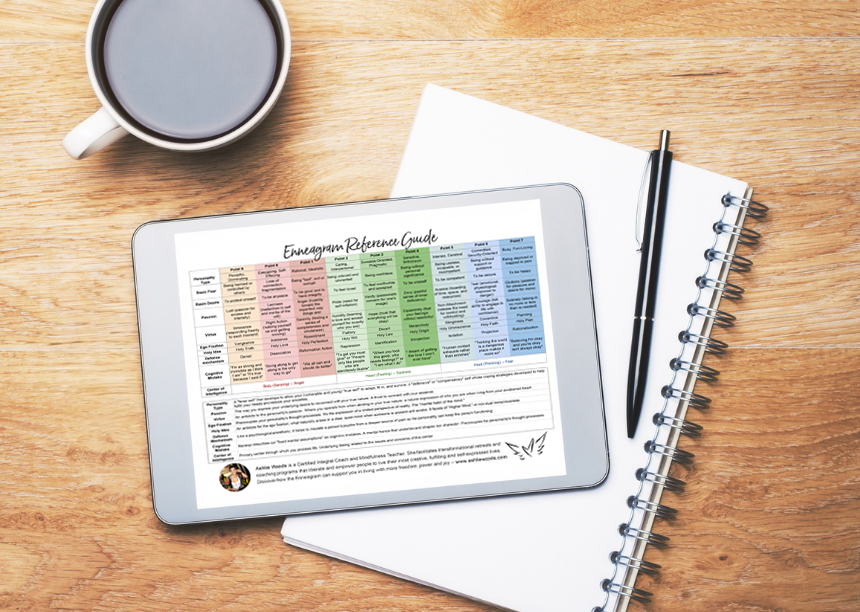Self-Preservation Eight — “Satisfaction”
The Self-Preservation Eight expresses lust through a strong need to obtain what they need for survival. The title given to this type is “Satisfaction.” This person has a strong desire for the satisfaction of material needs and an intolerance of frustration, and they have a hard time being patient when it comes to not getting immediate satisfaction of their needs and desires. This intolerance creates a kind of ruthlessness in these Eights about going after what they want and finding ways to get around people who might stand in their way.
Self-Preservation Eights feel compelled to go after what they need very directly without talking about it much—they know how to get things done without a lot of fuss or explanations. These people are the least expressive of the three Eight subtypes: they don’t talk much and they don’t reveal much. This is a no-nonsense person who doesn’t bother with pretenses. Self-Preservation Eights are preoccupied with getting things—and getting away with things.
This quick reference guide captures the various aspects of each Enneagram Type including attributes, basic fears, desires, passions, virtues, fixations, defense mechanisms, and more!
The driving need of Self-Preservation Eights can be described as an exaggerated ability to take care of themselves and find ways to meet their needs. In their focus on fulfilling their needs, they demonstrate a kind of exaggerated selfishness. They feel omnipotent in being able to satisfy and meet any need, and they disqualify any feeling, person, idea, or institution that opposes their desires. They will go against whatever.
These Eights are characters who know how to survive in the most difficult situations and how to get what they want from other people. Naranjo sometimes refers to Self-Preservation Eights by the name “Survival,” because they excel at generating the material support they need to survive and satisfy their desires.
Self-Preservation Eights know how to do business—according to Naranjo, they know how to barter and bargain and get the upper hand over anybody. Because they are strong, powerful, direct, and productive, they may generate dependency in others who come to rely on their control and protection.
The Self-Preservation Eight is the most “armed” and protected of all of the Eights—this is a more Five-ish Eight. They tend to possess a quiet strength; they are survivors who communicate strength without feeling the need to explain themselves. For them—at times, at least—kindness and good intentions don’t exist. In their need to be strong to meet their needs, they may devalue the world of feelings. And they may not be aware of the damage they cause to others.
These Eights may seek revenge without knowing why. In this way Self-Preservation Eights differ from the Social Eight or the Sexual Eight personality, both of which usually have a specific reason for acting in vengeful ways. This subtype appears more aggressive than the Social Eight (especially in men) and less openly provocative and charismatic than the Sexual Eight.
The Self-Preservation Eight can be confused with the Sexual One because they express a similar energy related to feeling an urgent need to “get what’s theirs.” But Naranjo points out that the contrast between the two types lies in the fact that the Self-Preservation Eight is fundamentally under-social, meaning they don’t mind going against social norms or breaking the rules, while the Sexual One is over- or hyper-social. Even though Sexual Ones are zealous in going after what they want, they still observe social norms, whereas Self-Preservation Eights care less about social conventions and will make their own rules to satisfy their cravings.
Janet, a Self-Preservation Eight, speaks:
I have always felt a very strong sense of personal responsibility for myself. I couldn’t and didn’t want to rely on anyone else to ensure I got what I needed from life. In order to do this I have been focused over the years on financial independence and earning my own living—my work, my career, was everything. When my first marriage ended this became my primary objective for nearly a decade, to the detriment of any long-term personal relationship. It’s not that I had ambitions to be fabulously wealthy—it was more about ensuring that my financial health was strong so that I felt secure and able to have control over choices about things like buying a new car, getting a new house, or where to go on holiday. I wasn’t a miser, and I didn’t hoard money. But I did spend money in a sensible and responsible manner. I got a financial advisor many years ago who has helped me with pension planning, good mortgage deals, and investments.
I was married for the second time—to a man eleven years my junior—and for nearly twenty years I was the breadwinner and still retained the “power” when it came to money. This dynamic has gradually changed over the years, and yet I find I am still the one who focuses on our financial affairs. When I feel stressed, this is where I find my anxiety and worry plays itself out—imagining us destitute, homeless, and helpless, which would never happen due to my prudent planning over the years.
Specific Work for the Self-Preservation Eight on the Path from Vice to Virtue
Self-Preservation Eights can travel the path from lust to innocence by learning to allow for a wider range of feelings; expressing more of their thoughts and emotions with others; and developing more of a sense of trust related to the fulfillment of their needs. Self-Preservation Eights often feel a sense of urgency around their need for the resources required to live a good life. They usually feel like they have to “go it on their own” and work hard to get the things they want and need. In line with this drive, they naturally develop the skills and abilities they need to be strong, self-reliant, and self-supporting. But this stance can intensify rather than alleviate their sense of insecurity around getting their needs met. And this (usually unconscious) insecurity may be denied and overcompensated for when they work excessively hard in the belief that they have to be autonomous. “If you are a Self-Preservation Eight, you can grow toward an experience of innocence by slowing down, learning to rely on others more, and having more faith in your ability to get what you need without having to expend so much effort and energy. Expand your ability to communicate what you need and want to others, whether it is about money and resources or love, care, and companionship.
Sourced with permission from The Complete Enneagram by Beatrice Chestnut.
Type 1 Type 2 Type 3 Type 4 Type 5 Type 6 Type 7 Type 8 Type 9
Ashlie Woods
Director of Business Division & Lead Coach at Sourced
Ashlie is a transformational coach, retreat leader, dance lover and Enneagram enthusiast. She is passionate about facilitating experiences that liberate and empower people to live their fullest, more creative and self-expressed lives. She believes there is a life that wants to be lived through you and a purpose only you can fulfill.
She spent 6 years designing and delivering corporate training programs focused on leadership development and company culture before making the bold leap to start her own retreat-based business.
Ashlie now supports heart-centered business owners (coaches, consultants, creatives, healers) to market, sell and deliver their transformational work in the world using their unique magical gifts.




